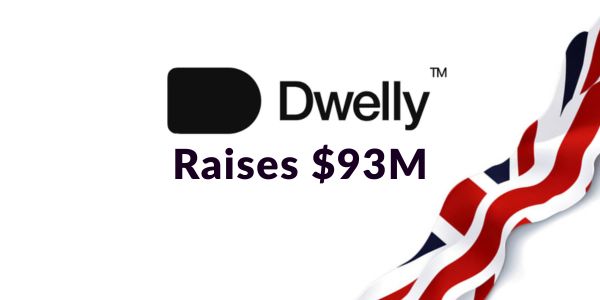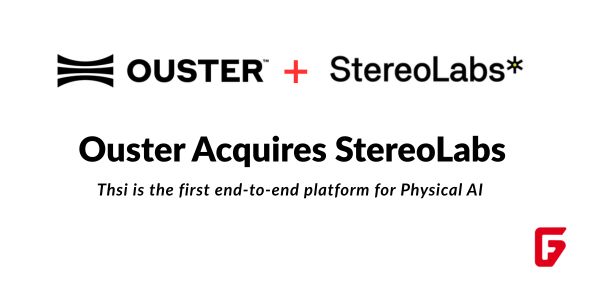Startups & Business News

It’s not every day that you witness history in the making, but that’s exactly what happened in the early hours of June 25, 2025. For the first time in over four decades, astronauts from India, Poland, and Hungary have launched into space together, marking a new chapter in international collaboration and commercial human spaceflight.
A Global Crew Takes Flight
The Axiom Mission 4 (Ax-4) crew lifted off aboard SpaceX’s Falcon 9 rocket from NASA’s Kennedy Space Center at 2:31 a.m. ET, riding in a brand-new Crew Dragon capsule. The team is set to dock with the International Space Station (ISS) on June 26, where they’ll spend up to 14 days conducting science and outreach.
This isn’t just any crew—Ax-4 is led by legendary U.S. astronaut Peggy Whitson, joined by Shubhanshu Shukla of India (pilot), Sławosz Uznański-Wiśniewski of Poland, and Tibor Kapu of Hungary (mission specialists). It’s a powerful symbol: three nations, each returning to government-sponsored human spaceflight after more than 40 years, now working side by side in orbit.
Why This Mission Matters
For India, this flight is a pivotal step toward its own crewed Gaganyaan mission, planned for 2027. Shukla’s journey is especially meaningful—he’s the first Indian to travel to space since Rakesh Sharma’s historic 1984 mission. Indian Prime Minister Narendra Modi captured the national mood, calling the launch a moment that carries “the wishes, hopes and aspirations of 1.4 billion Indians”.
Poland and Hungary are also celebrating. Polish Prime Minister Donald Tusk watched the launch alongside children at Warsaw’s Copernicus Science Centre, highlighting the inspiration this mission brings to future generations.
Science, Unity, and the Future of Spaceflight
This mission isn’t just about national pride. The Ax-4 crew will conduct around 60 experiments covering biology, materials science, and technology demonstrations. They’ll also engage with students worldwide, sharing their experiences and hopefully sparking a new wave of interest in STEM fields.
Poland and Hungary are also celebrating. Polish Prime Minister Donald Tusk watched the launch alongside children at Warsaw’s Copernicus Science Centre, highlighting the inspiration this mission brings to future generations.
Commander Whitson summed it up best:
“This mission shows that space exploration is no longer limited to a few nations — it’s a shared effort that reflects the best of what we can achieve together… This is what the future of space looks like — bold, inclusive, and driven by purpose.”
Commercial Spaceflight Hits Its Stride
Axiom Space, in partnership with SpaceX and NASA, is proving that the future of spaceflight is commercial and collaborative. This is Axiom’s fourth private astronaut mission to the ISS, and it’s a clear signal that governments can now hire private companies to send astronauts to space, bypassing the need to develop their own launch vehicles.
The Ax-4 mission also marks the debut of SpaceX’s fifth and final Crew Dragon vehicle, a workhorse that will eventually be succeeded by the next-gen Starship. For now, though, Dragon remains the backbone of crewed space access for NASA, the Pentagon, and commercial partners alike.
A New Dawn for International Space Collaboration
With the Ax-4 crew en route to the ISS, the world is watching a new era unfold—one where access to space is broader, more inclusive, and powered by both public ambition and private innovation. As these astronauts orbit above us, they carry not just the dreams of their own nations, but a message to the world: the future of space is for everyone.

futureTEKnow
Editorial Team
futureTEKnow is a leading source for Technology, Startups, and Business News, spotlighting the most innovative companies and breakthrough trends in emerging tech sectors like Artificial Intelligence (AI), Robotics, and the Space Industry.
Discover the companies and startups shaping tomorrow — explore the future of technology today.
Trending Companies
Latest Articles

Dwelly Raises $93M to Supercharge AI-Powered UK Rentals Roll-Up
London startup Dwelly just landed $93M to snap up UK rental agencies and inject AI smarts. Founders from Uber and

Encord Raises $60M Series C: Fueling Physical AI Data Wave
Encord just landed $60M in Series C funding to supercharge data tools for physical AI. Founders Eric Landau and Ulrik

Foodforecast Raises €8M Series A to Slash Ultra-Fresh Food Waste with AI
Foodforecast, a Cologne AI foodtech firm, just scored €8M in Series A funding led by SHIFT Invest. Their tools predict

AI-Driven Operational Excellence: How Leaders Scale Ownership, Discipline, and Continuous Improvement in 2026
In 2026, AI scales operational excellence fundamentals—clear ownership, disciplined execution, and continuous improvement—letting leaders focus on outcomes while systems handle

VoiceLine raises €10M to scale voice AI for enterprise frontline teams
Munich-based VoiceLine has closed a €10M Series A round to grow its voice AI platform for frontline sales and service

AI-Driven Logistics & Distribution Transformation: From Insight to Scalable Impact
AI is redefining logistics transformation—from network design to real-time execution. This article explores how data-driven insight, intelligent automation, and scalable

Hai Robotics Hong Kong IPO: From Startup Funding to Warehouse Robot Leader
Shenzhen’s Hai Robotics, pioneer in ACR warehouse robots, files for HK IPO after raising over $500M in funding rounds led

AI-Enabled Process Engineering & Continuous Improvement: Designing Systems That Learn
Explore how AI transforms process engineering and continuous improvement into self-learning systems. This article explains how organizations can design operations

Ouster Acquires StereoLabs: Unified Physical AI Sensing Platform Launches
Ouster’s $35M StereoLabs acquisition fuses lidar and ZED cameras into end-to-end Physical AI sensing. Founders Cecile Schmollgruber and team drive

Bretton AI Lands $75M Series B Funding to Scale AI Agents for Financial Crime and AML/KYC Compliance
Bretton AI’s $75M Series B modernizes AML KYC compliance via AI agents, slashing staffing costs for banks and fintechs like

Axiom Space Raises $350M to Build Commercial Space Station and NASA Spacesuits
Axiom Space has locked in a fresh $350M raise to push its commercial space station and NASA lunar spacesuits toward

Santé Raises $7.6M Seed: AI Fintech Revolution for Wine and Liquor Retail
New York startup Santé secures $7.6M seed to build AI-powered POS for liquor stores, tackling regs & inventory woes after
futureTEKnow is focused on identifying and promoting creators, disruptors and innovators, and serving as a vital resource for those interested in the latest advancements in technology.
© 2026 All Rights Reserved.
![Discover the top 10 AI companies in Germany [1st Edition], revolutionizing industries with cutting-edge technology and innovations.](https://futureteknow.com/wp-content/uploads/2025/02/Top-10-AI-Companies-in-Germany-Leading-the-Tech-Revolution-futureTEKnow.jpg)







